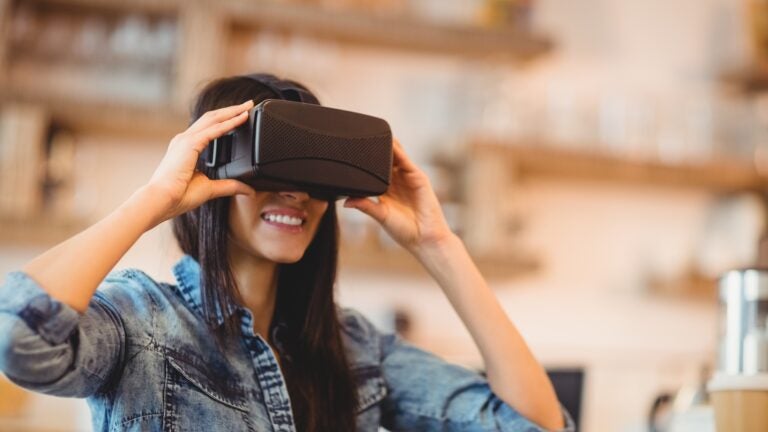
Virtual Reality
VR technology enhances language learning by providing an immersive and engaging environment that allows students to practice their language skills in real-life situations.
The CLC provides support for faculty who conduct literature research and hands-on exploration to investigate how virtual reality can enhance learning and teaching, specifically in the language classroom.
VR Resources for Language Learners
Here is a list of virtual reality (VR) resources specifically designed to support language learners in their language acquisition journey.
-
Noun Town Language Learning is the new way to learn a foreign language. Interact, listen, read, and speak your chosen language in a world that regains color as you learn. Test your skills with mini-games & talk to the local villagers. Learn Japanese, Chinese, Spanish, German, French and more.
MondlyVR offers language learning experiences in VR. It provides interactive scenarios where learners can practice conversational skills with virtual characters. It supports multiple languages and offers speech recognition for pronunciation practice.
The Lab offers a collection of mini-games and experiences. Although not specifically designed for language learning, it can help improve language skills through interactions with virtual characters and engaging gameplay. The game supports multiple foreign languages.
VR Faculty Working Group
Project goals:
Literature research and hands-on exploration of how virtual reality can enhance learning and teaching and what possibilities exist for language educators today
Project outcomes:
-
Summary of VR uses in the language classroom
-
Summary of research ways VR affects language learning
-
Recommendations for faculty, chairs, program directors, CLC, and Dornife regarding further exploration of VR and/or its practical application at USC.
Group Participants
Peyman Nojoumian, chair, (MDES)
Rania Ben Amor (French and Italian)
Goretti Prieto Botana (LAIC)
Ivette Miriam Gomez (LAIC)
Natania Meeker (French and Italian)